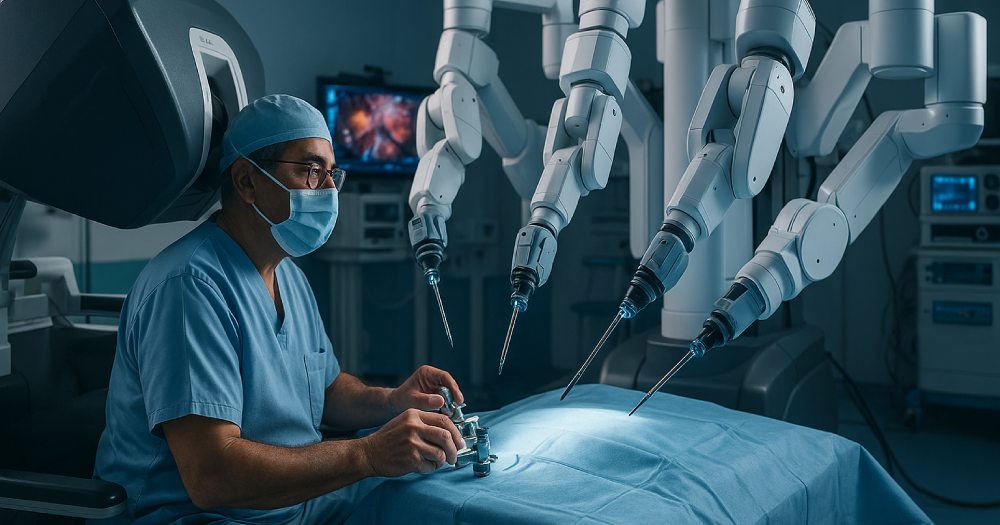Egypt looking to work with Chinese firms to advance robotic surgery

Egypt is gearing up for a leap into the future of medicine. In a move that blends technology with precision healthcare, the Ministry of Health has opened talks with Chinese medtech leaders TechnoWave and Medbot to usher in the age of robotic surgery. The meeting, led by Deputy Prime Minister and Minister of Health Khaled Abdel Ghaffar, signals Cairo's growing appetite for innovation in surgical care — one that could soon reshape how doctors operate and patients heal.
How does it work?
At the heart of this partnership is the ambition to roll out advanced surgical robots across Egypt's hospitals. The plan isn't just about importing machines; it's about building a sustainable ecosystem around them.
- Hospitals will be equipped with next-generation robots capable of performing highly precise operations across several medical fields.
- Remote training centers will be established to teach robotic surgery techniques using state-of-the-art global technology.
- Egyptian surgeons will undergo comprehensive training programs to master robotic systems and integrate them into clinical workflows.
As the Ministry's spokesperson Hossam Abdel Ghaffar noted, the collaboration also explores setting up local manufacturing and export capabilities for robotic instruments — a strategic step that could turn Egypt into a regional hub for medtech innovation.
Why does it matter?
Robotic surgery is more than a shiny gadget in the operating room — it's a game changer. These systems enhance precision, reduce recovery time, and minimize surgical risks. For Egypt, the initiative represents an investment in both technology and people.
"The expansion of robotic surgery represents a qualitative leap in the efficiency and accuracy of medical procedures," Abdel Ghaffar emphasized. In a country where healthcare systems are evolving rapidly, such leaps can redefine patient outcomes, boost public trust, and set new benchmarks for surgical excellence.
Beyond improving care, the move underscores Egypt's broader vision: to localize innovation, nurture homegrown expertise, and export knowledge. If executed well, it could position Egypt as a beacon of advanced healthcare in the Middle East and Africa.
The context
Egypt's push for robotic surgery fits neatly within its long-term strategy to invest in human capital and promote digital transformation across public services. Healthcare modernization has been a key pillar of that strategy, aligning with the government's efforts to attract foreign investment and foster high-tech industries.
In this light, the talks with TechnoWave and Medbot are more than just business — they're a statement of intent. Cairo wants to sit at the same table as the world's leaders in medtech. The partnership may still be in the negotiation phase, but its potential impact could ripple far beyond hospital walls, driving knowledge exchange, job creation, and technological sovereignty in the years ahead.
💡Did you know?
You can take your DHArab experience to the next level with our Premium Membership.👉 Click here to learn more
🛠️Featured tool
 Easy-Peasy
Easy-Peasy
An all-in-one AI tool offering the ability to build no-code AI Bots, create articles & social media posts, convert text into natural speech in 40+ languages, create and edit images, generate videos, and more.
👉 Click here to learn more


